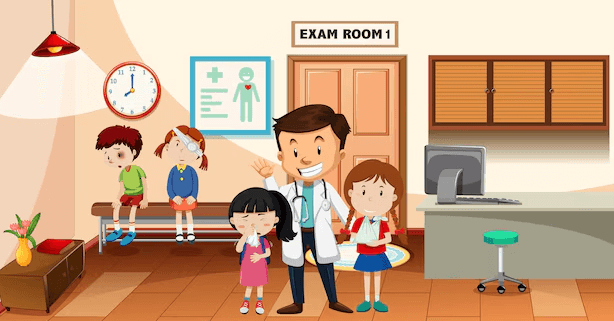Animated:_1xgpn8-Kla= Pediatrician

The animated resource “Animated:_1xgpn8-Kla= Pediatrician” serves as a vital tool in enhancing understanding of pediatric care, an area often overlooked by parents. It effectively illustrates key aspects such as the selection of a pediatrician and the significance of regular health evaluations. As families navigate the complexities of children’s health, the animation provides essential insights that can transform their approach to care. However, the implications of these practices extend beyond mere check-ups; they touch upon a child’s overall development and well-being. What specific strategies might parents implement to maximize these benefits?
Importance of Pediatric Care
Pediatric care is a cornerstone of child health, providing essential medical support during the critical stages of growth and development.
It plays a vital role in promoting pediatric health, ensuring that children receive comprehensive assessments, vaccinations, and preventive services.
Through regular check-ups, parents can address developmental milestones and identify potential health issues early, fostering an environment that nurtures optimal child development and well-being.
Choosing the Right Pediatrician
When it comes to selecting a pediatrician, parents are faced with a crucial decision that can significantly influence their child’s health and well-being.
Assessing pediatrician credentials is essential, ensuring they have the necessary training and experience.
Additionally, consider their communication styles; a pediatrician who listens and engages openly fosters a supportive environment.
This partnership will empower parents and promote optimal child development.

What to Expect During Visits
During visits to the Animated:_1xgpn8-Kla= Pediatrician, parents can expect a comprehensive evaluation of their child’s health and development.
This includes discussions on child behavior, ensuring that any concerns are addressed. The pediatrician will also review vaccination schedules, ensuring that your child receives timely immunizations.
This thorough approach fosters a supportive environment where parents can freely express their concerns and receive expert guidance.
Read Also Food:2hp_Yxf9epi= Vitamin C
Tips for Regular Check-Ups
Regular check-ups are essential for monitoring a child’s growth and development, providing an opportunity for proactive health management.
Adhere to recommended check-up frequency, typically every 1-2 years after age 2, to ensure your child meets common milestones.
Engage with your pediatrician about any concerns, and remember to keep a record of developmental progress to facilitate meaningful discussions during visits.
Conclusion
In conclusion, the significance of pediatric care cannot be overstated, as it lays the foundation for a child’s health and development. Although some may argue that the perceived inconvenience of regular check-ups outweighs their benefits, the long-term advantages of early detection and preventive measures far surpass any temporary disruptions. By prioritizing consistent medical evaluations and fostering communication with healthcare providers, families can ensure a nurturing environment that supports optimal growth and well-being in children.




